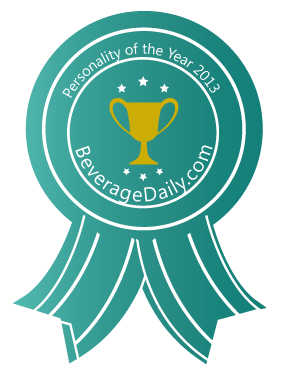Following on from Part One of a Q&A last week, BeverageDaily.com’s Personality of the Year 2013 says it’s vital brands be creative and move from micro to macro, with product differentiation increasingly important.
BEN BOUCKLEY: Philip - the US beverage market is growing, but also seems to be becoming more local and fragmented. What’s the secret to a winning brand, and how much care does VIRUN take in terms of deciding who you partner with?
PHILIP BROMLEY: A lot of new beverage brands that engage us all want to develop a brand that will be sold at Wal-Mart, Kroger’s, Costco etc. It is this thinking that will inevitably lead to failure. Walk down the beverage aisle at your local grocery store, how many brands do you see are not owned by the major brands? The answer is, very few.
Also, the shelf space available to you in these markets are tiny. You have 8 feet of one particular brand’s sport drink and you are given 3 inches. Not to mention, if you are a new brand, you are producing maybe 30,000 units a month while the large brand is producing 5m units a month. What is their cost per unit, 15 cents? Your cost is 35 cents…

‘Think beyond electrolytes and B vitamins’
How many times I hear, ‘we will be lucky to break-even the first year’. If you are going to compete at these large venues, introduce a product that differentiates against other brands; not another beverage with electrolytes or B vitamins.
Only then will consumers consider paying a premium, even then it is tough to convince a consumer that paying 10 cents more per SKUI compensates this new ingredient, therefore suggest adding multiple differentiated ingredients, not just one.
Be creative in how you introduce your product, choose natural product outlets instead of main-stream stores. Negotiate with local restaurants in your area or small grocery stores. Ask them to sell your product and you’ll pay a monthly fee for a good location.
Ask your local restaurant if they will offer your unique beverage as an exclusive in order to access free feedback on new flavors or different flavors.
Ask a local coffee shop to offer your new beverage brand, once you are on their shelf, you can use this as a tool to entice other small locations to offer your brand and then work your way up to hiring a sales expert and begin negotiating with larger retail or distributors.
BEN BOUCKLEY: Turning to functionality in drinks – and thinking of product like Change Cola – do you think in 10 years time that most beverages will have to offer something other than hydration?
PHILIP BROMLEY: Yes, most definitely. In order for the functional market to survive and simply because it is human nature to exceed what has been done or what has not been done; beverages will have to offer more than just simply a way to keep you from dehydrating. Can you imagine this market in 10 years? It’s crazy to think that far ahead.
I would like to think that the next wave of innovation is to exploit current/existing ingredients that have been thought to be impossible before all-the-while staying within the ever-growing FDA guidelines. VIRUN has developed a clear water-soluble 10% Phytosterol powder. Phytosterols in water? However, this mode of thinking is what I believe the future is all about for functional beverages.
